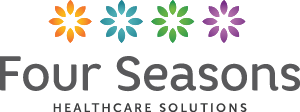In the realm of dialysis, individualized care provides tailored treatment plans honed to each patient’s health history, lifestyle factors, and specific needs. Robust data related to their health status, including allergies, coexisting conditions, and treatment history, creates the foundation for this personalized approach. This customized method may be surprising because it moves away from a one-size-fits-all model, crafting specific strategies based on each patient’s unique narrative rather than broad medical generalizations or assumptions.
Individualized care and medication management involve tailoring medical treatments and drug regimens to meet the unique needs and characteristics of each patient. This approach emphasizes personalized interactions between healthcare providers and patients to ensure that treatments are optimized for effectiveness and safety. At our dialysis center, we prioritize individualized care by working closely with patients to customize their treatment plans based on their specific health conditions and preferences.
Evaluating the Patient’s Needs & Conditions
Imagine walking into a doctor’s office and, instead of discussing your symptoms, they immediately write you a prescription. It doesn’t sound right, does it? A similar principle applies to personalized medical care: understanding the patient’s unique needs is critical to providing the best and most effective treatment plan. When it comes to medication management, such an approach becomes even more important—especially for individuals undergoing long-term dialysis treatment.
Gathering comprehensive data about the patient’s medical history, current health status, and individual needs is essential in providing personalized care. This means assessing not only their current condition but also their dialysis treatment history, any coexisting conditions, allergies, and lifestyle factors that impact their everyday life. By understanding the unique aspects of each patient’s health, healthcare providers can tailor treatment plans to address specific needs effectively. This might involve identifying particular medications that could aggravate existing conditions or adjusting dosages based on kidney function.
Understanding the vital role of comprehensive patient evaluation and personalized medication management lays the foundation for establishing individualized care strategies tailored to each patient’s specific health needs and circumstances.
Establishing Individualized Care
Crafting personalized treatment plans is a vital aspect of improving the overall quality of care provided to patients. It involves tailoring the treatment frequency, dialysis prescription, medication regimen, and dietary recommendations to suit the specific needs of each individual. By developing these custom plans, healthcare providers can effectively address the diverse health conditions and requirements of their patients, optimizing their treatment outcomes.
A key element in individualized care is recognizing that every patient is unique. Their responses to treatments, medication reactions, and dietary preferences vary significantly. A one-size-fits-all approach is inadequate for delivering optimal care. For instance, some patients may require more frequent dialysis sessions than others due to the progression of their condition, while certain individuals may have specific dietary restrictions or medication sensitivities that need to be accounted for in their treatment plan.
More than just focusing on medical interventions, individualized care takes into account the holistic needs of the patient. It considers the individual’s lifestyle, emotional well-being, and treatment adherence. By incorporating these details into the care plan, healthcare providers can foster a patient-centered approach that ensures a comprehensive and effective strategy for addressing the patient’s health needs.
The Patient-Centered Approach
Emphasizing a patient-centered approach in care delivery is fundamental to establishing individualized care plans. This approach places the patient at the heart of decision-making regarding their treatment, fostering a stronger relationship between healthcare providers and patients. By involving patients in the decision-making process, it not only empowers them but also encourages greater adherence to treatment plans and improved health outcomes.
The patient-centered approach goes beyond purely medical aspects; it considers the patient’s preferences, values, and goals concerning their health. For example, some patients may have personal preferences for certain types of dialysis or specific dietary choices. By involving patients in discussions about their care, healthcare providers gain valuable insights that enable them to tailor treatment plans that align with the patient’s priorities and aspirations for their well-being.
A patient-centered approach has been shown to contribute significantly to enhancing the overall quality of life for patients. It places importance on listening to patients’ concerns, addressing their questions, and providing them with necessary support throughout their health journey. Through this approach, healthcare providers can build trust and rapport with their patients, creating an environment conducive to open communication and collaboration towards achieving better health outcomes.
In summary, establishing individualized care involves tailoring treatment plans to meet each patient’s unique needs while prioritizing a patient-centered approach that fosters strong patient-caregiver relationships. By incorporating these principles into practice, healthcare providers can optimize care delivery and improve overall treatment outcomes for their patients.
Prescribing & Tailoring Medications
Prescribing medications tailored to a patient’s specific health conditions is akin to a chef customizing a dish based on dietary restrictions and preferences. Just as no two individuals are exactly alike, no single medication plan fits all. Tailoring medications involves adjusting dosages, selecting suitable formulations, and understanding potential interactions with other treatments like dialysis.
When customizing medication regimens for patients undergoing dialysis, there are key considerations to keep in mind. Dialysis itself has the potential to alter a patient’s body chemistry, affecting the way they respond to medications. For instance, dosages of certain drugs may need to be adjusted as they are cleared from the body during dialysis sessions. It’s crucial for healthcare providers to have a comprehensive understanding of how individual patients respond to their treatments so they can optimize the effectiveness and safety of prescribed medications. Moreover, when dealing with patients undergoing dialysis, the consideration of comorbidities is paramount in medication management.
Consideration of Comorbidities
Comorbidities refer to the presence of more than one chronic disease or condition in a person. When it comes to managing medications for individuals undergoing dialysis, healthcare providers need to account for any coexisting conditions, such as high blood pressure, anemia, or diabetes. In understanding and addressing comorbidities, healthcare providers can provide a more comprehensive approach to medication management for patients undergoing dialysis. By considering these interconnected factors, tailored medication regimens can be optimized to effectively address each individual’s unique health needs.
Monitoring the Medication Management Process
Once a patient has been prescribed an individualized medication regimen, it becomes crucial to closely monitor their health as they progress through this plan. Regular health assessments are like taking periodic snapshots of a patient’s well-being, helping healthcare providers evaluate the medication regimen’s effectiveness and swiftly identify any adverse effects or areas needing adjustments.
Taking these assessments could involve routine lab tests to measure specific aspects of a patient’s health that could be influenced by their medication. For example, a cholesterol-lowering drug might warrant regular lipid panel tests to gauge its efficacy in managing cholesterol levels. Vital sign assessments are also fundamental, as they provide critical indicators of a patient’s overall health status.
The Role of Frequent Health Assessments
Frequent health assessments ensure the effectiveness of the prescribed medication and serve as an opportunity for healthcare providers to engage with patients and address any concerns or questions they may have. These evaluations enable healthcare professionals to detect any potential issues early on, allowing for timely adjustments to the medication plan.
For instance, frequent blood pressure checks for patients newly started on antihypertensive medications are crucial. Consistently elevated blood pressure readings may prompt a reassessment of the prescribed dosage or type of medication to ensure optimal control and reduce the risk of complications associated with uncontrolled hypertension.
Following regular health assessments, it is paramount for healthcare providers to engage in comprehensive discussions with patients about their current medication regimen, including potential side effects and any challenges encountered during its administration.
Enhancing Patient Education
Patient education involves explaining the importance of adhering to the prescribed schedule and dosage. Ensuring patients understand why they need to take their medications as directed significantly contributes to their compliance and aids in achieving treatment goals. Discussing potential side effects diminishes anxiety and empowers patients to promptly recognize and report any adverse reactions.
By actively engaging in patient education, healthcare providers empower patients to play an active role in managing their health. When patients are knowledgeable about their medications, they are better equipped to identify subtle changes in their health and communicate effectively with their healthcare team.
Monitoring the medication management process through regular health assessments and patient education ensures that patients receive optimal care throughout their treatment journey. This comprehensive approach not only improves treatment outcomes but also fosters a collaborative patient-provider relationship built on transparency and trust.
Role of Healthcare Professionals in Medication Management
When it comes to managing medications, healthcare professionals such as physicians, pharmacists, and nurses are essential teammates. Each has a crucial part to play, like different instruments working together in a symphony. Physicians act as conductors in this orchestra, prescribing medications based on their diagnosis and specific knowledge of each patient’s medical history. Their role is fundamental, as they meticulously consider factors such as allergies and potential drug interactions before prescribing any medication to ensure the safety and well-being of their patients.
On the other hand, pharmacists are like meticulous musicians who pay attention to every note in the music score. They dispense medications, ensure that patients understand how to take their medicine, and keep a lookout for potential drug interactions or adverse effects that could occur when patients are taking multiple medications. Then we have the nurses, who act as attentive stage managers during a performance. They play a crucial role in patient education, ensuring that patients understand how to take their medications correctly and providing ongoing support throughout the treatment process. They also monitor patients for any side effects or complications that may arise from their medication regimen.
In this intricate dance of healthcare professionals, communication is key. Effective communication among healthcare professionals is essential to ensure that everyone is on the same page regarding the patient’s medication plan. This team-based approach facilitates comprehensive care for the patient and minimizes the risks associated with medication errors. This multidisciplinary collaboration ensures that each aspect of the patient’s medication plan is carefully considered and executed to promote optimal health outcomes and enhance overall well-being.
When devising a care plan for dialysis patients at Four Seasons Dialysis Center, nephrologists work closely with pharmacists to tailor medication regimens suited to each patient’s unique needs. Nurses then play an integral role in educating patients about their medications and monitoring them for any adverse effects or complications. Empowering patients to be active participants in their own medication management is an equally significant aspect, enhancing adherence and understanding of treatment plans, which directly contributes to improved health outcomes and overall well-being.
Achieving Desired Health Outcomes
When it comes to managing medications and ensuring positive health outcomes, collaboration between healthcare providers and patients is crucial. One way to achieve this is through personalized goal setting, where both parties work together to identify specific health goals that are important to the patient. This isn’t just about managing health conditions; it’s about improving the overall quality of life. By taking an individualized approach, patients feel empowered; they have a say in their treatment plan and understand how it directly affects their well-being.
Planning for Success: Personalized Goal Setting
By incorporating lifestyle changes into these health goals, patients can take charge of factors within their control. For instance, a patient with diabetes can work towards specific dietary modifications and exercise routines in addition to managing medication effectively. These small but significant adjustments can lead to greater success in reaching overall health objectives. If a patient’s goal is to reduce anxiety, a personalized plan might include therapy sessions, meditation techniques, and gradual exposure to anxiety-inducing situations, along with medication management. This tailored approach ensures that the patient’s emotional well-being aligns with their medical treatment.
Outcome Tracking and Adjustments
Aside from goal setting, outcome tracking is another critical aspect of achieving desired health outcomes. Regardless of the condition being managed or treated, continuous monitoring of health markers and medication effectiveness allows for timely adjustments in the care plan. Regular assessments help healthcare providers identify if the current medication strategy is working effectively or if changes need to be made to achieve better outcomes. With advancements in healthcare technology, patients now have access to various tools for tracking their own health outcomes – from mobile apps to wearable devices. This not only empowers patients to actively participate in their care but also provides healthcare professionals with valuable data for making informed decisions about medication adjustments.
By integrating personalized goal setting and continuous outcome tracking into care plans, both healthcare providers and patients can work together toward achieving holistic success in medication management while ensuring that individual health objectives are met.
To learn more about how personalized care can benefit you or your loved one, feel free to reach out to our team at Four Seasons Healthcare Solutions. Our dedicated staff are here to provide guidance and support tailored to your individual needs!











